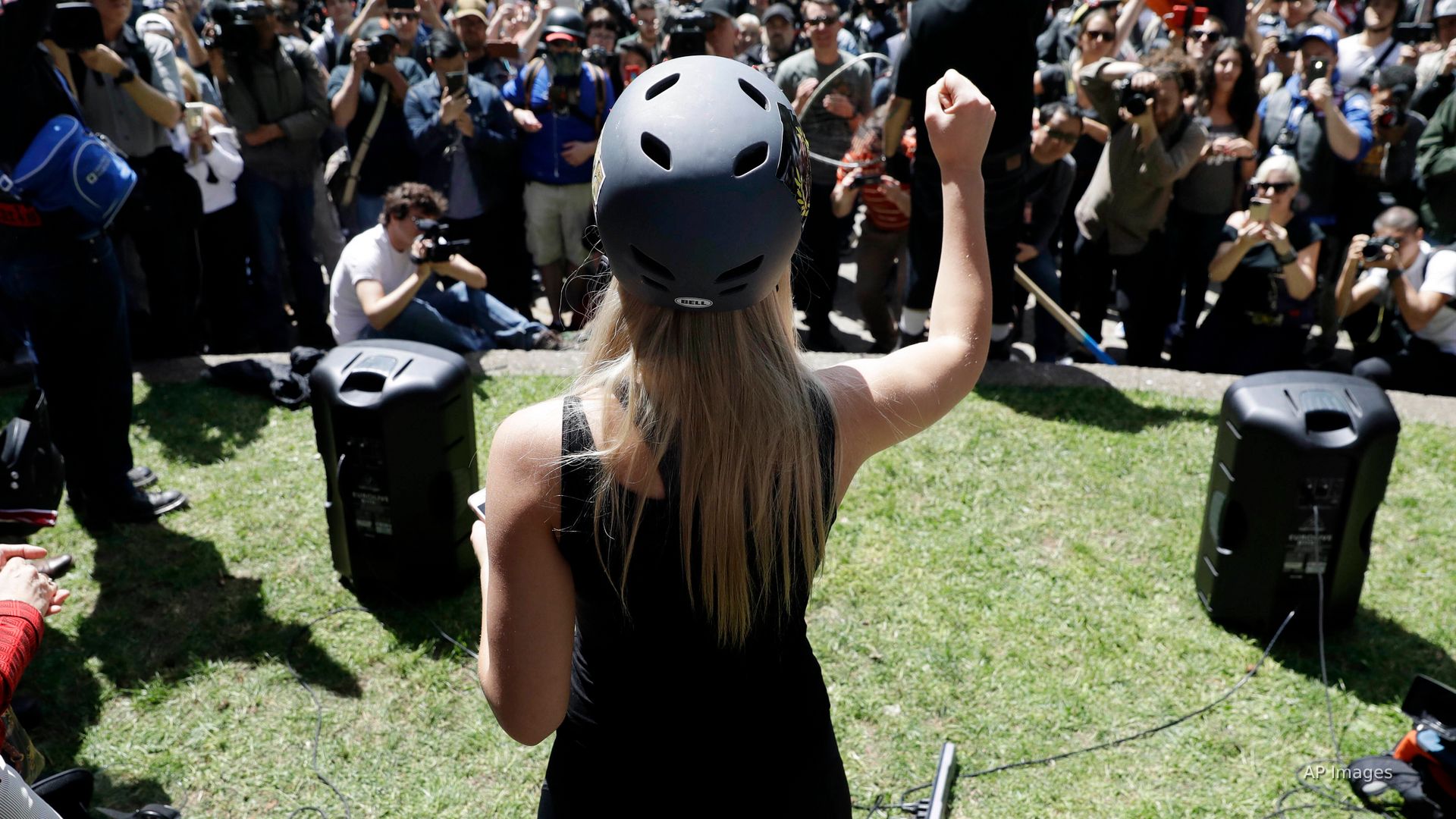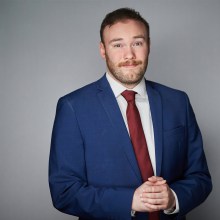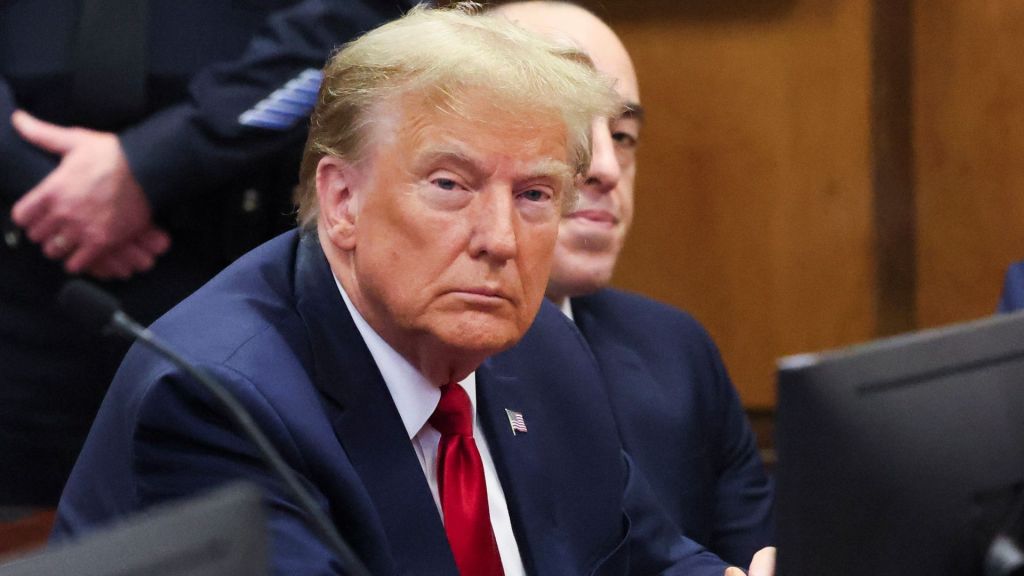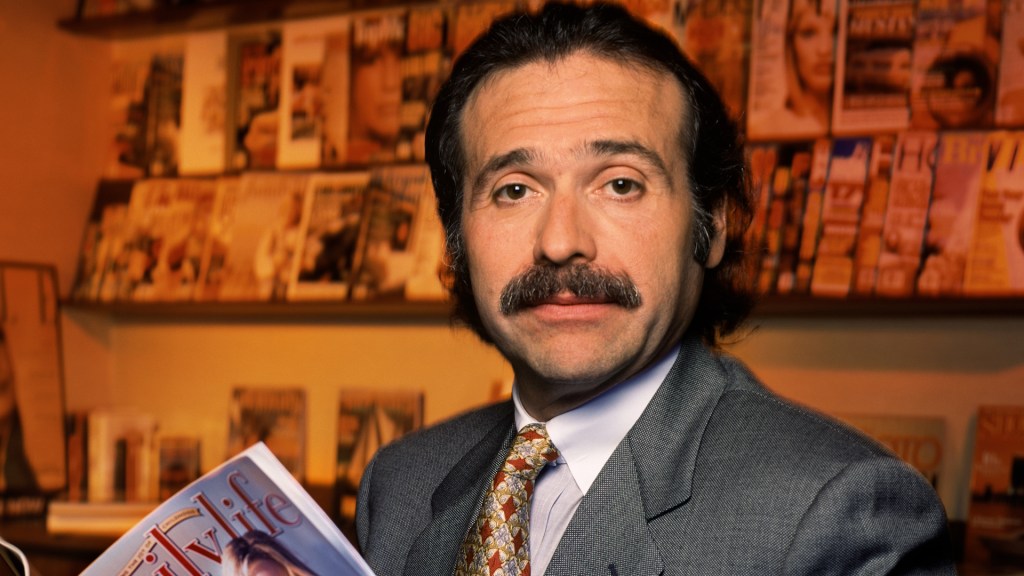
Protests, violence on college campuses challenge free speech protections
Apr 14, 2023
By Jack Aylmer (Reporter/Producer ), Dan Reardon (Editor)
First Amendment free speech protections are supposed to work both ways. Speech everyone likes is not what needs protecting, rather it is controversial speech that the founders of this nation sought to defend. In the American tradition, the answer to this type of speech has been more speech, because when a controversial speaker is given a platform, their remarks are protected by the Constitution.
Likewise, those who disagree with the speaker are also allowed to protest or offer counter arguments in their own venues. However, debate over what is known as the “heckler’s veto” is on the rise following recent incidents on college campuses. These incidents have brought a question into discussion: At what point do protests move into the realm of infringing upon the right to speak freely?
For example, earlier in 2023, Stanford Law School students disrupted and stopped the address of Stuart Kyle Duncan, a federal judge on the U.S. Court of Appeals for the Fifth Circuit, who had been invited to the campus by the school’s chapter of the Federalist Society. Stanford’s associate dean for diversity, equity, and inclusion, Tirien Steinbach, also joined the protest, taking the microphone to interrupt the judge.
“For many people in this law school who work here, who study here and who live here, your advocacy, your opinions from the bench, land as absolute disenfranchisement of their rights,” Steinbach said in a video of the incident.
Stanford responded by requiring all of its law students to attend a half-day session aimed at educating them on freedom of speech, placing Steinbach on leave, and imposing new training for staff. The school cited its policy that “protest is allowed but disruption is not.” In an an open letter following the incident, Dean Jenny S. Martinez said that “commitment to diversity and inclusion means that we must protect the expression of all views.”
“Apparently, America’s future lawyers and future judges fundamentally misunderstand free speech rights. Shouting down speakers is just like any other form of censorship,” Nico Perrino wrote. Perrino is the executive vice president at the Foundation for Individual Rights in Education, and published a Los Angeles Times opinion piece about the incident at Stanford. “It’s the few deciding for the many what they can hear. Protesters have every right to engage in peaceful, nondisruptive protest. But they do not have the right to take over someone else’s event and make it their own.”
A more violent incident occurred during an event put on by conservative nonprofit Turning Point USA at San Francisco State University. Former University of Kentucky swimmer Riley Gaines, TPUSA’s featured speaker, was reportedly assaulted at the venue by protestors.
Gaines, who competed against Lia Thomas, the first openly transgender athlete to win an NCAA Division I national championship, had been invited to discuss women’s athletics and the inequalities that female competitors may face against transgender opponents. An altercation with protestors following the event forced officials to barricade Gaines in a campus room for three hours with police for her safety, as one activist suggested that she should pay them off in order to be allowed out.
“I give my speech and, of course, there’s many protesters in the room. But I welcome protesters. I welcome people with different perspectives,” Gaines said. “After the event, almost as soon as it finished, it was as if the floodgates opened and I was rushed. People from outside the classroom rushed in. They flickered the lights off. They stormed the podium and they were pushing and shoving and hitting. And I was supposed to meet with the head of campus police a half an hour before the event to discuss an exit strategy if this happened but the police never showed up to meet me. And so, I had no idea there was even police in the room. So at this moment I feared for my life. It’s so chilling to know what these people want to do to you and what they’re willing to do to you.”
“Universities are sites of discussion, debate, and disagreement,” Kristen Shahverdian, PEN America’s senior manager in free expression and education, said in a statement about the incident. “What happened at SFSU makes a mockery of the principles of free speech that allow higher education to function. This is unacceptable, and anathema to how a campus should operate.”
However, a statement released afterwards by Dr. Jamillah Moore, the school’s vice president for student affairs and enrollment management, made no mention of this, and instead thanked students who participated “peacefully.” Gaines has said that San Francisco State University Police have reached out to her to set up a meeting in an attempt to clarify what happened, but that no one else from the school has contacted her.
Meanwhile, a pro-life meeting at Virginia Commonwealth University in March was shut down after event participants were similarly assaulted and sheltered in a campus room, while two protestors were arrested for their actions. The pro-life group is now threatening legal action against VCU due to the lack of security the school provided and the delayed response of campus police, who reportedly did not arrive at the scene for nearly half an hour despite prior warnings that event would be disrupted by protests.
Massive protests and threats of violence have lead to the cancellations of numerous other speaking events at campuses around the country. These include Uncensored America’s planned speech at Penn State in 2022, Ben Shapiro’s anticipated event at Gonzaga University in 2019, and Milo Yiannopoulos’ scheduled appearance at UC Berkeley in 2017, which protests over led to $100,000 in campus property damages.
Though college students have every right to protest speakers or organizations whose viewpoints they disagree with, when it bars speech from even happening or turns into violent threats, and in some cases actual violence, that brings on what some have deemed a suppression of free speech.
“Of course we have the right to protest and of course we have the freedom of speech,” Gaines said of her experience at SFSU. “But, when I was ambushed, that mob that was taking it further than protesting, that was resorting to violence, verbally and physically to prove your point.”
As for Gaines, she’s pushing back at those who she believes aim to silence her, and has already indicated on social media that she may take legal action against SFSU for the university’s response to her assault.
“[The incident at SFSU] still only further assures me I’m doing something right,” Gaines said. “When they want you silent, speak louder.”
Unbiased news.
Directly to
your inbox.
Free!
MOST POPULAR
-
 AP Images
AP Images
Argentina asks to join NATO as Milei looks to enhance security, strengthen ties
Watch 1:57
Friday
-
 Getty Images
Getty Images
Utah students protest 'furries,' school admin deny problem
Watch 2:10
Friday
-
 Getty Images
Getty Images
NASA warns that China is using civilian cover to weaponize space
Watch 4:01
Thursday
-
 Getty Images
Getty Images
Hawaii begins process of removing World War II Ha‘ikū Stairs
Watch 0:52
Thursday


